At Changing Hands in Tempe, Ariz., said co-owner Gayle Shanks, remainders became part of the store's inventory in 1984--10 years after it opened. Now, as she's preparing to open a second location, remainders make up 15% of sales.
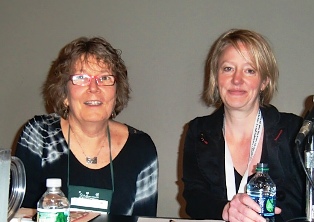 |
| Gayle Shanks and Mary Magers |
"Our philosophy is we think that great books are what we are all about," said Shanks, "and we include them in prices we all can afford." She added that Changing Hands offers a product mix that encourages its customers to "visit often and stay longer," and remainders help fulfill many aspects of the store's philosophy.
Mary Magers said that at Magers & Quinn in Minneapolis, remainders account for 50% of sales. The store, which sells new, used and collectible books, describes itself as "a bounty of the world's best books assembled by biblioholic booksellers." Mager said reminders are used to build inventory and to expand sections.
"I liken buying remainders to grocery shopping, as opposed to dress shopping," said Shanks, explaining that the former is all about "buying, buying, buying and not looking." But even if filling the shopping cart is the goal of remainder buying, she stressed it is not done without a plan.
Knowing where to shop helps, and CIROBE (the Chicago International Remainder and Book Overstock Expo) and GABBS (Great American Bargain Book Show) are the top two trade shows to attend, the speakers agreed.
Shanks said she walks the sales floor and gets a section-by-section sales report from the remainders buyer before she attends a bargain book-buying event. "If you can bring the frontlist buyer with you, it will go 10 times faster," Shanks said, "because they know immediately what is selling." Changing Hands tries to rotate its remainder stock four to five times per year, and while staff attends the trade show and peruses remainder catalogues on a regular basis, the store does not buy skids--that is, bulk remainders.
Magers & Quinn has gotten good at managing skids, having created a system for unloading the delivery and for overstock and for asking for a manifest of the skid from the vendor. Both stores make warehouse trips, and suggest booksellers make sure another book retailer has not been there the week before and cleaned out the inventory. They each buy about three pallets of books when they make warehouse trips.
One of the keys to Changing Hands' success in remainders, said Shanks, has come from entering these books into its point-of-sale system so that they can reorder titles that are selling well. The trick with remainders is that the books can go out of inventory fast, and that remainders are unreturnable.
But one area booksellers can and should manage when it comes to remainders is shipping costs. Compare shipping prices and don't forget to negotiate the prices, Shanks advised, since most overstock vendors have more inventory than they can sell. And despite what both Shanks and Magers had expected with the rise of electronic calendars, remaindered print calendars are still a hot item.
Once you get into the remainder buying habit, Magers added, it becomes addictive. --Bridget Kinsella












 Sarah Harrison Smith will become the new children's editor at the New York Times, taking over from
Sarah Harrison Smith will become the new children's editor at the New York Times, taking over from 


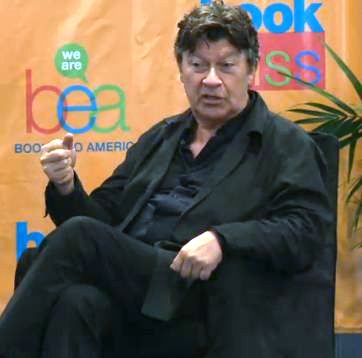 When you listen to Robbie Robertson--legendary guitarist, lyricist and one of the founding members of The Band--tell a story, you just know there are a million more where that came from. For example: "I've had the opportunity to sit with Chuck Berry and say okay, on Tuesday it was Teresa Brewer and Patti Page singing popular music. On Thursday, something happened and there you were and Little Richard and Fats Domino. Were you guys just waiting behind the curtain? How did rock & roll explode that quickly? What happened? And Chuck Berry said because the real father of rock and roll had taught us something we couldn’t wait to share with everybody, and that guy's name was Louis Jordan."
When you listen to Robbie Robertson--legendary guitarist, lyricist and one of the founding members of The Band--tell a story, you just know there are a million more where that came from. For example: "I've had the opportunity to sit with Chuck Berry and say okay, on Tuesday it was Teresa Brewer and Patti Page singing popular music. On Thursday, something happened and there you were and Little Richard and Fats Domino. Were you guys just waiting behind the curtain? How did rock & roll explode that quickly? What happened? And Chuck Berry said because the real father of rock and roll had taught us something we couldn’t wait to share with everybody, and that guy's name was Louis Jordan."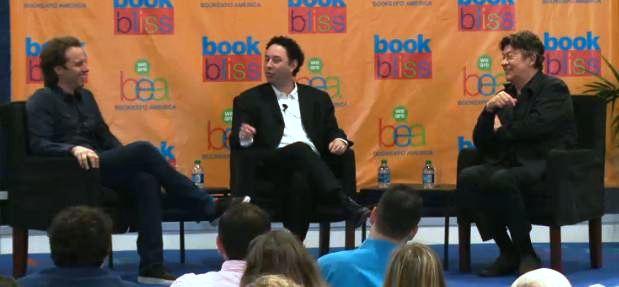 "It felt like it was amazing that nobody's already done this. It felt like it was long overdue," said Robbie, adding that he believes the book, aimed at 8- to 13-year-old readers (and their parents), "sets a taste factor in place." As young people enjoy the music of today, they can also get "a sense of where that lineage is."
"It felt like it was amazing that nobody's already done this. It felt like it was long overdue," said Robbie, adding that he believes the book, aimed at 8- to 13-year-old readers (and their parents), "sets a taste factor in place." As young people enjoy the music of today, they can also get "a sense of where that lineage is."
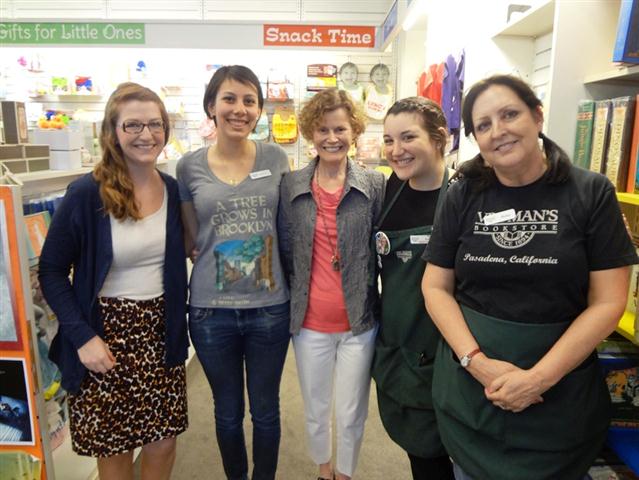
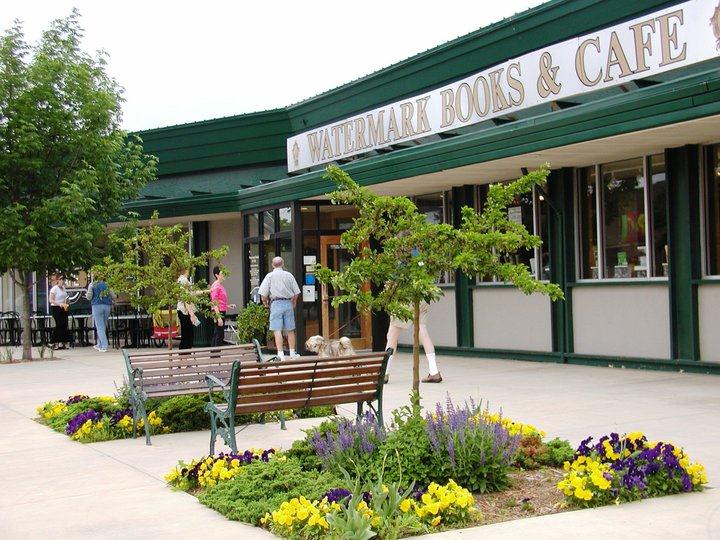 For an appearance by Khaled Hosseini on June 12 at Wichita State University, co-host
For an appearance by Khaled Hosseini on June 12 at Wichita State University, co-host 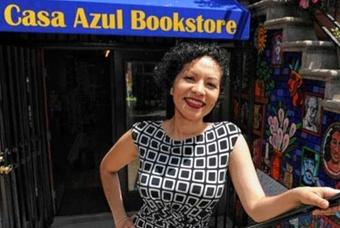 Congratulations to Aurora Anaya-Cerda, founder a year ago of
Congratulations to Aurora Anaya-Cerda, founder a year ago of  The Kill Room
The Kill Room In 1950s Newport, R.I., well-born Lucy De Bourgh marries Thomas Snow, son of a local garage owner and his bookkeeper wife. Thomas is definitely from the wrong side of the tracks, a theme that Louis Begley explores thoroughly in Memories of a Marriage, an intensely intimate portrayal of a couple from several perspectives.
In 1950s Newport, R.I., well-born Lucy De Bourgh marries Thomas Snow, son of a local garage owner and his bookkeeper wife. Thomas is definitely from the wrong side of the tracks, a theme that Louis Begley explores thoroughly in Memories of a Marriage, an intensely intimate portrayal of a couple from several perspectives.